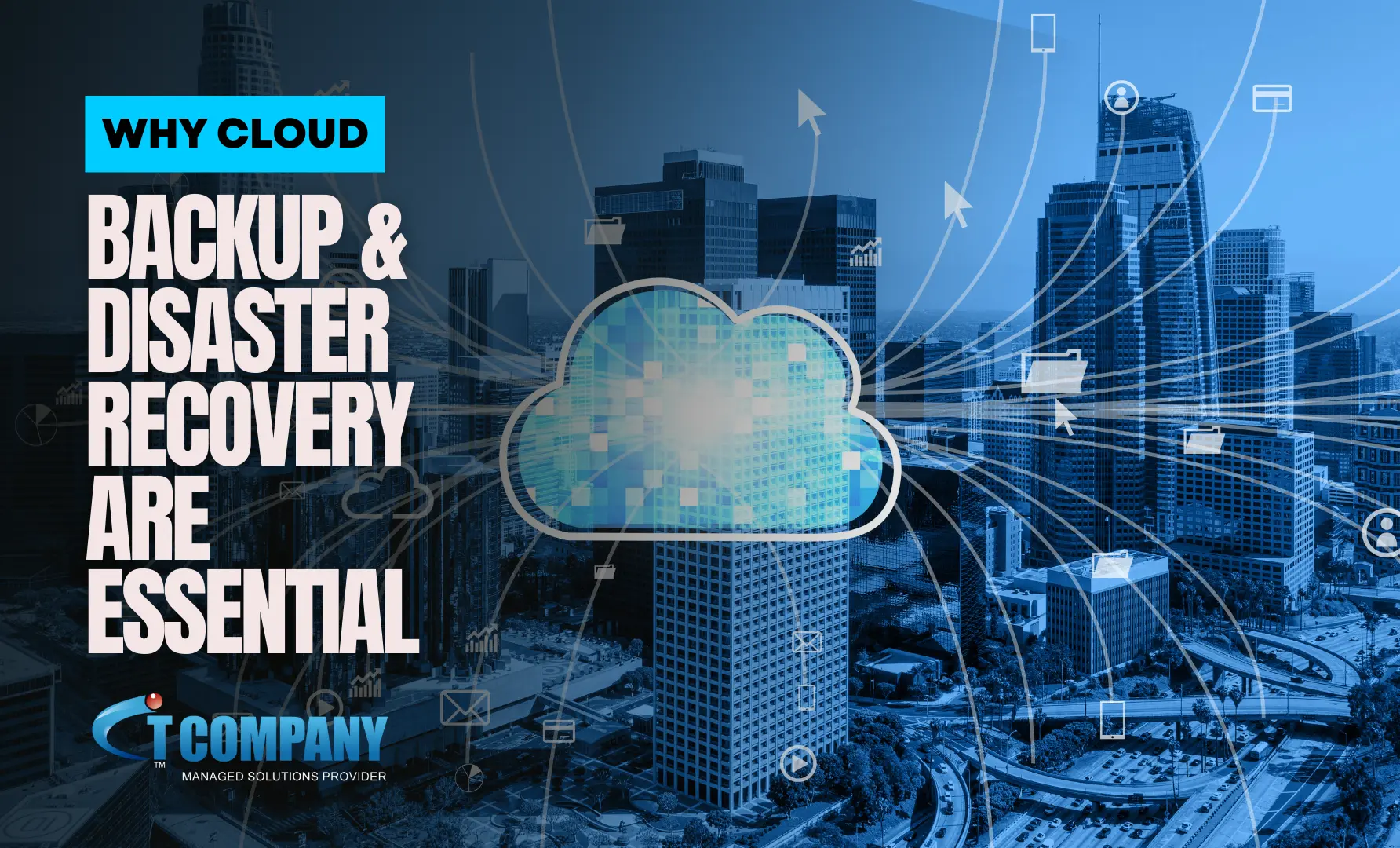Introduction
Imagine waking up to find your company’s critical data gone wiped out by a ransomware attack, hardware failure, or natural disaster. For many businesses, this isn’t just a nightmare; it’s reality. Data is the lifeblood of modern organizations, and losing it can mean downtime, lost revenue, and even business closure. That’s why cloud backup and disaster recovery (DR) aren’t optional anymore they’re essential. At IT Company, we help businesses worldwide secure their data and build resilience with reliable cloud backup and disaster recovery solutions. In this guide, we’ll explain why these tools are vital, how they work, and what steps you should take to safeguard your business.What Is Cloud Backup and Disaster Recovery?
Cloud Backup
Cloud backup is the process of copying business data to remote servers hosted in the cloud. It ensures that even if your local files are lost or corrupted, you can restore them quickly.Disaster Recovery (DR)
Disaster recovery is a broader strategy. It involves not just data backup but also systems, applications, and infrastructure recovery so businesses can continue operating after a crisis.The Connection Between Backup and DR
Backup protects your data. Disaster recovery protects your entire business continuity. Together, they form a critical safety net.Why Cloud Backup & Disaster Recovery Are Essential
Protection Against Ransomware and Cyberattacks
Safeguarding Against Human Error
Business Continuity During Disasters
Compliance and Regulatory Requirements
Cost Efficiency and Scalability
Key Features of a Strong Cloud Backup & Disaster Recovery Plan
Automated Backups
Manual backups are error-prone. Automated cloud backups ensure data is saved regularly without human intervention.Geographic Redundancy
Storing backups in multiple geographic locations prevents data loss from localized disasters.Encryption and Security
Data must be encrypted both in transit and at rest. IT Company’s cloud backup solutions ensure enterprise-grade security.Rapid Recovery Time Objectives (RTO)
The faster you can restore systems, the less downtime you face. DR solutions should guarantee recovery in minutes, not days.Testing and Monitoring
Regular testing ensures your backup and DR strategies work when needed. Without testing, recovery plans are just theory.The Risks of Not Having Cloud Backup and DR
- Permanent Data Loss – Once gone, files may never be recovered.
- Extended Downtime – Every hour of downtime costs businesses thousands.
- Reputation Damage – Clients lose trust when services fail.
- Regulatory Penalties – Non-compliance can lead to fines and legal action.
How IT Company Helps with Cloud Backup & Disaster Recovery
At IT Company, we design custom solutions that protect businesses globally. Our services include:- Managed Cloud Backup – Secure, automated, and scalable storage.
- Disaster Recovery-as-a-Service (DRaaS) – Complete business continuity planning.
- 24/7 Monitoring & Support – Immediate action when incidents occur.
- Compliance-Ready Solutions – Tailored to industries with strict regulations.
Conclusion
In today’s digital-first world, businesses can’t afford to ignore data protection. Cyberattacks, human error, and natural disasters are inevitable but data loss doesn’t have to be. That’s why cloud backup and disaster recovery are essential. They ensure business continuity, protect against threats, and provide peace of mind. At IT Company, we help organizations worldwide build resilience with secure, reliable, and cost-effective backup and DR solutions. Don’t wait for disaster to strike act now. Ready to safeguard your business? Contact IT Company today to implement cloud backup and disaster recovery tailored to your needs.FAQs
Isn’t regular backup enough for my business?
Not really. Backup saves files, but disaster recovery restores entire systems, ensuring you stay operational. IT Company provides both for complete protection.
How often should backups be done?
Ideally, backups should be continuous or at least daily. Automated cloud backups ensure nothing is missed.
Are cloud backups safe from hackers?
Yes when properly configured. IT Company’s solutions use encryption, isolation, and monitoring to keep backups safe from cyberattacks.


Leave a Reply